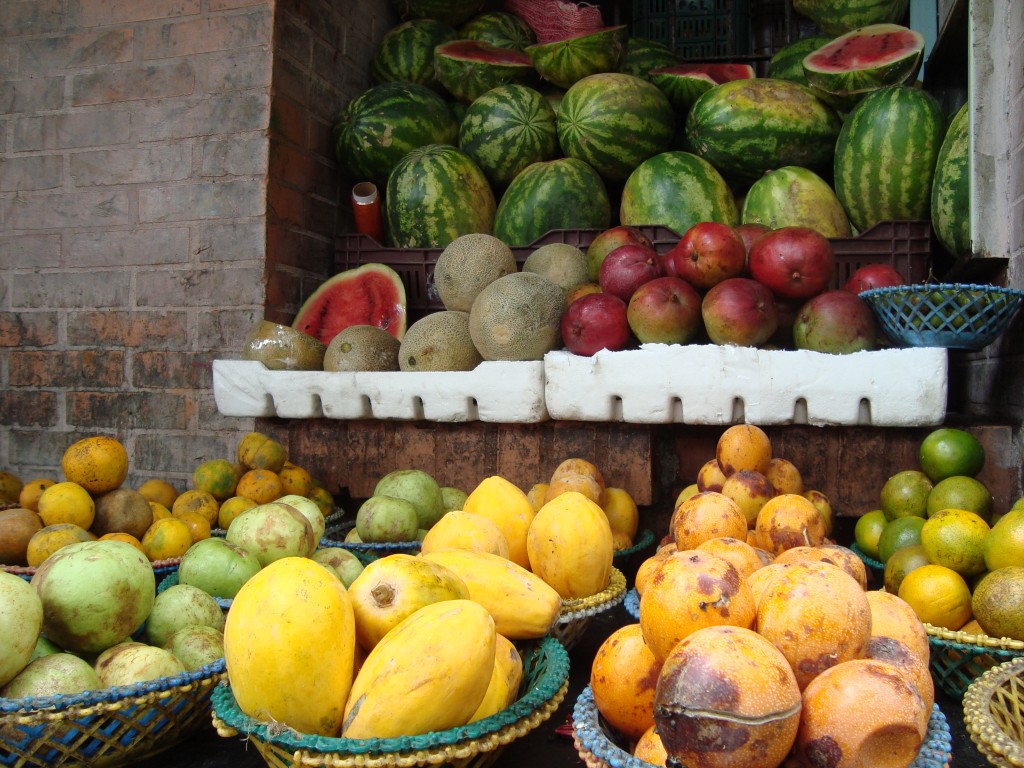Many who know me would say that Tu B’shevat is my favorite holiday. Why? Because I like fruit, and Tu B’shevat celebrates the new year for the trees.
The main custom and way to observe Tu B’shevat is to eat lots of fruit. Many have different customs as to how much variety. It is good to have at least one new fruit that you’ve not had yet in the past year. This will enable you to make the ‘Shehechianu’ blessing. The next step is to have the five fruit from the seven species that the land of Israel is blessed with: grapes, pomegranate, olives, figs, and dates.
After this the sky is the limit. Some people try to have ten types of fruit; others try to have eighteen, twenty six…and so on.
A good thing to do is to sit down with the family and friends for a Tu B’shevat feast where everyone makes a blessing over the fruit and gives thanks to G-d for bringing forth from the ground the fruit of the trees.
As I travel fruit makes up almost 80% of my diet. Fruit is available everywhere and it’s kosher. I especially like to discover new fruits around the world.
Happy Tu B’shevat and enjoy your fruit!
One Response to “What is Tu B’shevat and How do We Celebrate Tu B’shevat”







A few timely halachos for Tu B’shvat:
Which I’ve taken from http://halachafortoday.com
The site sends an email with a daily halacha.
1) It is customary [for Ashkenazic Jews] to eat different varieties of fruits on Tu B’Shvat, as this day is the ‘Rosh Hashanah” for fruit trees (meaning that the “year” regarding Ma’aser and Arlah is counted from this day) (Mogen Avraham Orach Chaim Siman 131:16)
Some people have the custom to eat an Esrog (or Esrog Jelly) on Tu B’Shvat (Likutei MaHarich)
It is also customary to daven on Tu B’Shvat for a beautiful, kosher Esrog on the following Sukkos (Bnei Yissochor Shvat 2:2)
The Ben Ish Chai even wrote special Tefilah for this (CLICK HERE for the text of the Tefilah).
2) It is a Mitzvah for a person to seek out and eat new fruits in order to be able to offer praise and thanks to Hashem and to show that we appreciate all the wonderful things that Hashem creates for us to enjoy in this world. See Mishna Berura Siman 225:19 where he references a Talmud Yerushalmi very end of Maseches Kidushin where it says:
“[When a person will stand in judgment before Hashem after he/she leaves this world] they will have to give a Din V’Cheshbon (reckoning) for anything (i.e. food that Hashem created) that they had the opportunity to taste, yet didn’t taste!”
The Korban H’Eida in his commentary to this Gemara explains that it is referring to not reciting SheHechiyanu on every possible fruit.
Many Poskim maintain that the custom of eating various varieties of fruits on Tu B’Shvat, and seeking out fruits on which to recite the bracha of SheHechiyanu, developed as a way to fulfill this requirement of the Talmud Yerushalmi, and what better day to do this than on the Rosh Hashana for trees!
Taken from http://halachafortoday.com